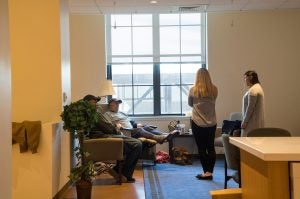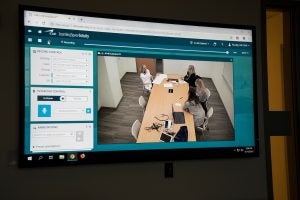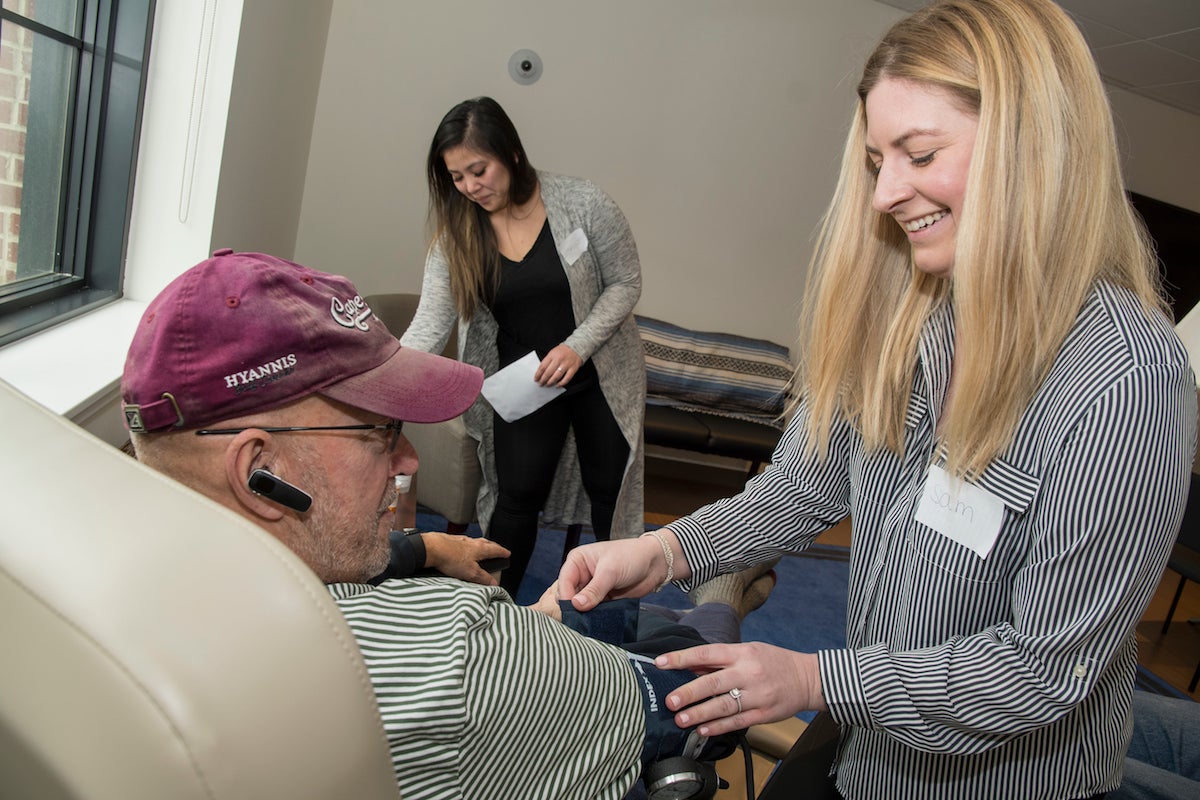Funded by a grant from EOHHS, program gives students hands-on experience
With the ever-soaring cost of health care in hospitals and clinics, there is greater emphasis on providing health care in the home to help lower costs and providing new opportunities for health care providers to work in alternative settings.
Nurse practitioners from the University of Rhode Island will have a leg up on the competition, thanks to an advanced simulation training program that gives them hands-on experience and prepares them for treating patients in their homes. Funded by a $159,000 grant from the state Executive Office of Health and Human Services, part of the Healthcare Workforce Transformation project, students are practicing home health care in the advanced simulation labs at the Rhode Island Nursing Education Center, preparing them for the growing trend in the health care industry, according to nursing Associate Professor Denise Coppa.
The experience grew out of a federally funded home based primary health care program — in place at the College of Nursing and Thundermist Health Centers — which can accommodate only two students. The new program allows all primary care nurse practitioner students top experience simulated care in home based environments.
 “A very important part of the role of a nurse practitioner is health promotion and prevention, a lot of which will be done in the home,” Coppa said. “The value of this program is showing our students that they see patients differently in home-based care.”
“A very important part of the role of a nurse practitioner is health promotion and prevention, a lot of which will be done in the home,” Coppa said. “The value of this program is showing our students that they see patients differently in home-based care.”
More than 60 URI students have gone through the program, a three-part simulation exercise that began last spring. The exercise uses Simpl Simulation, a company that specializes in simulated clinical experiences for nursing students. The company spent two days recently running nursing students through a simulated home based primary health care experience with live actors. The actors portrayed couple George and Reid, two fishermen in their mid-60s, one of whom experienced serious hip pain, along with a nagging cough and fatigue.
The students visited with the couple in a simulated home in the lab, which is designed to resemble a typical four-room apartment, complete with living room, bedroom, kitchen and bathroom. The lab contains all the furniture, appliances and even clutter you would expect to find in a typical home to create as realistic a scenario as possible. The exercise allows students to practice treating the patient and using motivational interviewing techniques for both him and his husband to uncover the challenges they face in George’s treatment and in their lives.
Meanwhile, evaluators, including about a dozen faculty members in addition to the Simpl Simulation staff members, observe the interaction through one-way glass while the students’ interactions with the “patients” are recorded for debriefing afterward. The evaluators, professors and even the actors themselves give the students immediate feedback on their work after participating in the scenarios.

“This experience is valuable for students as they prepare to provide home health care in our communities,” said State Medicaid Director Patrick Tigue. “Innovative training like this widens students’ career opportunities and, ultimately, improves the delivery of health care to Rhode Islanders. That is a major goal of Medicaid’s Health System Transformation Project, and fully supports the current Accountable Entity program. We are thrilled to support such impactful, hands-on education.”
While the project with Simpl Simulation has ended, the College of Nursing has acquired the program, allowing it to incorporate the training into the on-going curriculum for nurse practitioner students, according to Coppa.
“It would be meaningless if we just have students come in, do the simulation and leave,” Coppa said. “You have to do the whole package or it doesn’t work – the simulation, feedback to the students, classroom study. This is really important; it’s where health care is going — home-based primary care. This is really cutting-edge training.”

